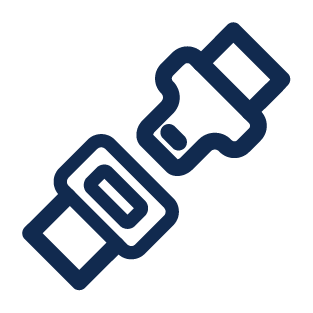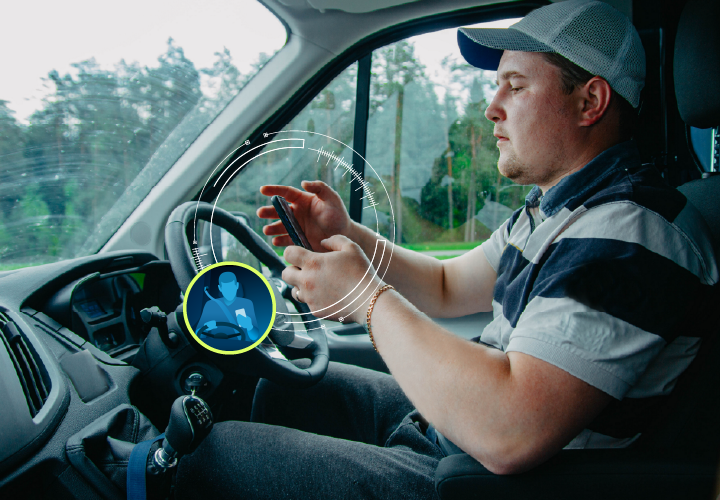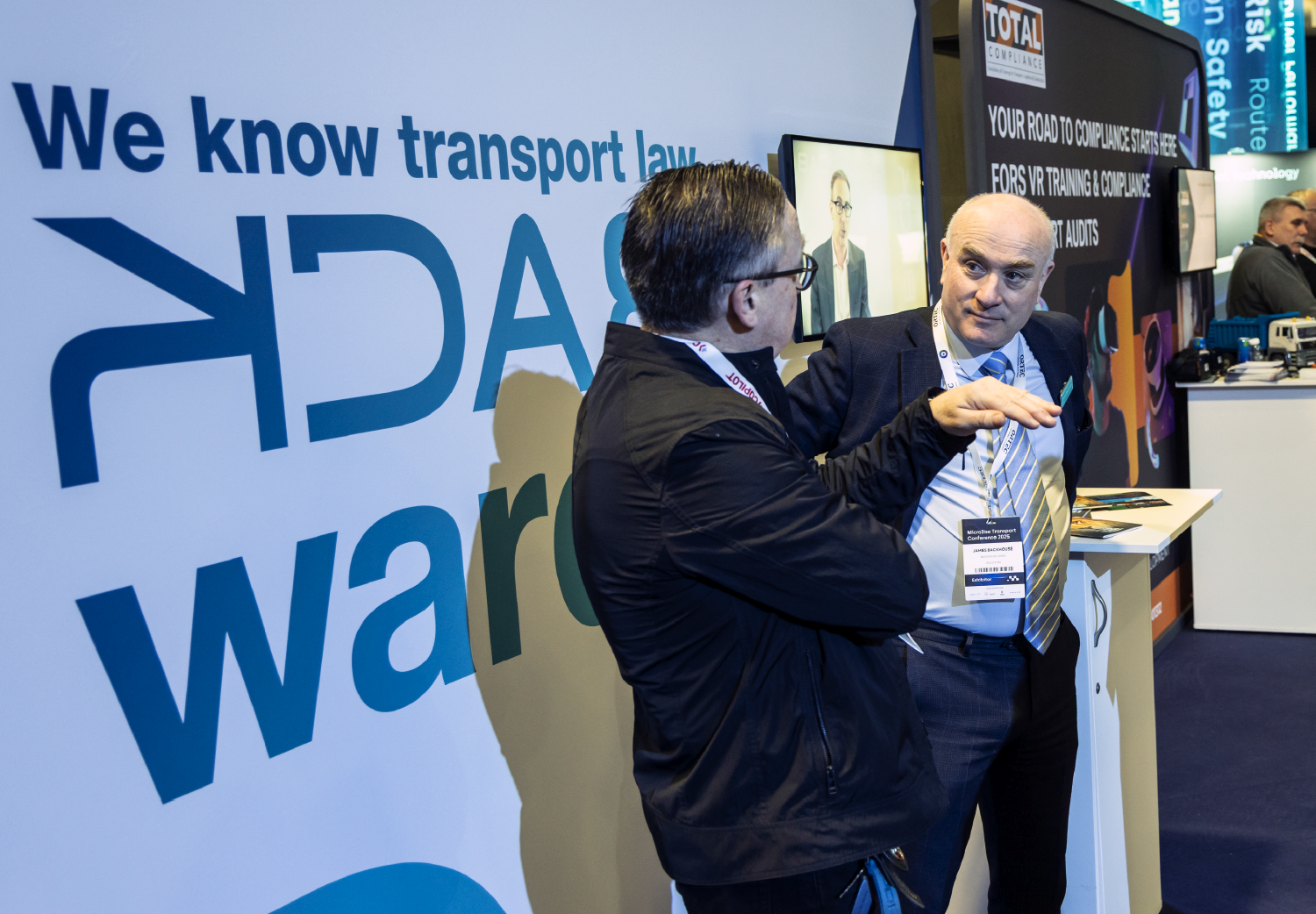World class fleet safety, security and compliance starts with world class drivers.
According to The Royal Society for the Prevention of Accidents (RoSPA), the top five most dangerous driving behaviours are:
- Fatigue
- Speeding
- Distractions
- Not wearing a seatbelt
- Driving under the influence
Of course, they seem so glaringly obvious – and avoidable – when they’re listed like that 👆
But as we can all recognise, driving is such an everyday, automatic activity. Do we give it the proper due care and attention it deserves? The attention every road user deserves.
That’s why understanding and addressing the most dangerous driving behaviours is critical to enhancing road safety, safeguarding assets and protecting your people.
Whether out of habit or complacency, these behaviours lead to the same end: disruption, injury, asset damage and – at worst – loss of life.
However, within the context of a fleet operation, there is real opportunity. Opportunity to tackle risk head-on through better driver coaching, stronger compliance processes and a smarter use of technology.
What is classed as dangerous driving?
Dangerous driving is the careless or reckless operation of a vehicle which poses significant risk to passengers, pedestrians, other road users and, of course, to the drivers themselves.
The Road Traffic Act 1988 outlines the full list of driving offences and the protective measures required by law e.g. seat belts, helmets, etc.
For fleet operators, embedding a culture of compliance means going beyond these legal basics. It means creating systems that protect drivers and the public alike; and that can start with understanding your driver data and learning from the insights.
Life behind the wheel
Our brains are super clever. We can drive whilst thinking of different things, consciously and unconsciously. Luckly, we don’t need to think about our heart beating or breathing in and out, but on the flipside, our minds can wander, and we can get distracted.
For professional drivers, life behind the wheel of a heavy goods vehicle is busy and full of distractions. But road safety must always be a driver’s number focus.
Let’s take a closer look at those risky driver behaviours, understanding the reasons why they might occur and the actions we need to take.

Fatigue –
Why: poor night’s sleep, exceeding recommended driving hours, mental exhaustion.
All of these can make you sleepy behind the wheel which ultimately means slower reaction times and lapses in concentration. Recognising these influences and spotting when they are impacting your driving is the first step.
Other causes: monotony of the road, stress, medical conditions, medication, poor diet and lifestyle.

Speeding –
Why: rushing, frustration, negligence, overconfidence.
Speed limits are there for a reason but when we’re running late, drivers push the limits to try and make up for lost time. Sometimes, we’re simply not paying attention to changes to the speed limit. Or maybe, as an experienced driver, you think you can be trusted to go faster.
Regardless of circumstance or experience, we have no right to think we are above the law. Speed limits are a legal limit, enforced by law to ensure the safety for all road users including drivers, passengers, pedestrians and cyclists.
Other causes: keeping up with traffic flow, passenger influences.

Distractions –
Why: mobile phones, vehicle technology, eating and drinking, external distractions.
If you are texting, reading messages or scrolling social media whilst driving you are severely distracted, even in stand-still traffic. Also, when talking hands-free you can be too heavily involved in the conversation, with your focus diverted from the road ahead.
Phones, eating, drinking and smoking are also distractions, and are all things we can avoid by removing temptation.
Something we can’t always control are external distractions out on the road. For example, billboards, pedestrians, scenery and accidents are all things that catch our attention when driving. However, being aware of the impact of such distractions will help you concentrate on the job in hand.
Other distractions: passengers, children and pets, personal grooming.

Not wearing a seatbelt –
Why: driving short distances, low speeds, forgetfulness, habit.
A seatbelt is a lawful requirement. Like speeding, it is not up the driver to decide when they should wear one; the answer should be always.
There are a few exceptions, but as seatbelts can dramatically increase the chance of survival in the case of an accident, is it worth the risk?

Driving under the influence –
Why: alcohol and drug use
Drink driving is the leading cause of fatal accidents worldwide. Driving under the influence of alcohol or drugs impairs judgment, coordination and severely reduces your reaction times.
Avoidance is the only option. Also, consider how long substances stay in your body. If you’ve had a heavy night, you will usually find that you are still over the limit and unfit to drive the morning after.
A mindset shift: Embedding safer driver behaviours
We can already start to see the corrective actions needed to reduce risky behaviour behind the wheel. Driving, especially for a living, is a risky business and demands a serious and competent attitude.
Fleet safety isn’t just a checklist – it’s a mindset.
Drivers...

Look after your physical and mental wellbeing

Plan ahead with rest stops and flexible schedules

Remove physical and digital distractions

Stay hydrated

Maintain patience and composure

Take pride in safe, compliant driving
Always...

Avoid alcohol or drugs

Wear your seatbelt

Stick to legal speed limits

Carry out regular walkaround checks to make sure your vehicle is safe to drive

Look out for and adapt to changing road, weather and traffic condition

Listen to your body and mind – take breaks when needed
How can you create a safer, more compliant fleet?
Fleet and transport managers are the guardians of road safety within their organisation. Driving behavioural change starts with leadership and investment in tools that make a real difference.
Here are some sure-fire ways to embed a culture, with safety at the very core:

Introduce a Driver Excellence Programme
Coach, support and reward drivers for professional behaviours. Empower your drivers to make better decisions and reward them for their attitude.

Use the Right Technology
Invest in fleet technologies like AI distraction cameras, bridge strike warnings, journey optimisation and tachograph compliance tools.

Analyse Your Data
Use telematics insights to understand trends and common dangers. Give your drivers targeted safety direction based on real driver behaviours, not assumptions.

Ask the Experts
Sometimes small changes or upgrades can make all the difference. Be specific – ask for advice on areas you want to improve and ask for their recommendations.
Driving forward with confidence
Reducing risky driving is part of a broader commitment to fleet safety, security and compliance. When drivers are supported with the right tools and training – and when businesses treat road safety as a strategic priority – everyone benefits.
Explore more how Microlise can help you build a world-class fleet that’s safer, smarter and fully compliant.




